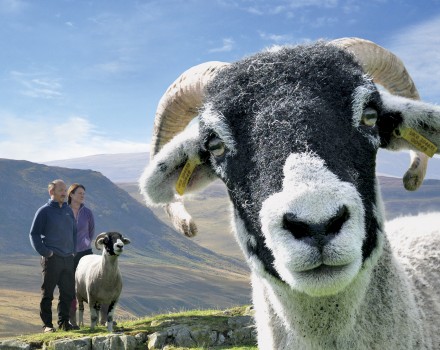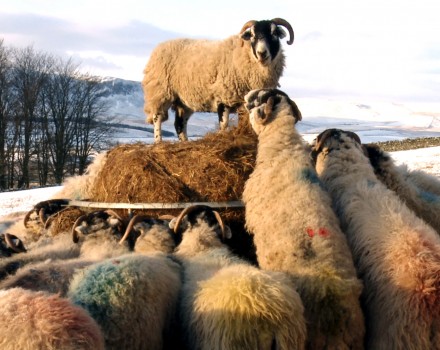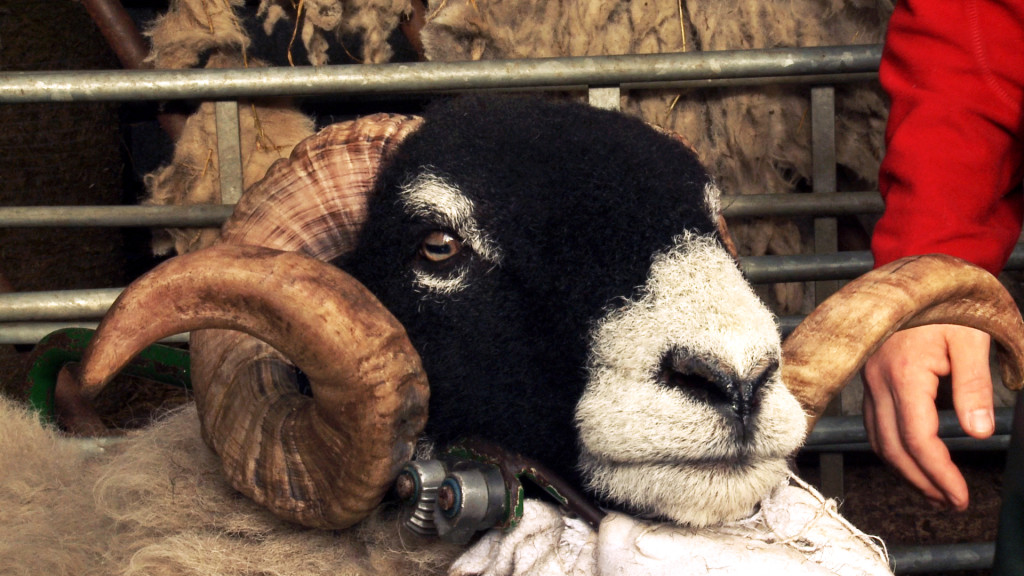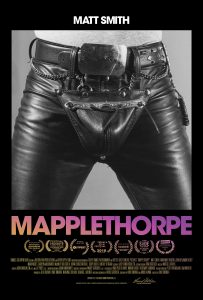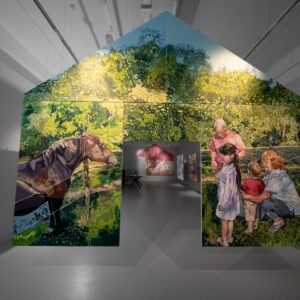In the North Pennines, tenant farmers Tom and Kay spend their days looking after their flock of prized sheep, and hoping that this will be the year they breed the perfect one. Director Magali Pettier, herself a farmer’s daughter, follows a year in their lives, capturing both the stark, stunning beauty of the landscape, and the brutally hard graft it takes just to survive. Their three children are growing up close to the land, attending a school entirely comprised of farmers’ children, thoroughly immersed in their remote rural world. As the seasons change the couple help birth, groom, nurture and sell their sheep – even when the odds often seems stacked against them. A treat for the senses, Addicted to Sheep allows us to experience life on a hill farm – without having to get mucked in ourselves.
Addicted to Sheep had its festival World Premiere at Sheff Doc/Fest, UK’s premier documentary and digital media festival, the ‘Cannes’ for documentary film-makers.
Find out about further screenings and more info over on their website: www.addictedtosheep.com
@addictedtosheep #addictedtosheep and www.facebook.com/addictedtosheep
The film-maker
Magali Pettier is from a third generation farming family in France and she knows life can be tough for small farmers anywhere. They rarely take holidays, they worry about cash-flow and they cope with all the uncertainties of the weather. As a film-maker, now living and working in North-East England, Magali was drawn to the world of tenant hill farmers and decided to look into their little-known way of life.
Her initial idea was to film both in the Pennines and Brittany, contrasting the experiences of different families across a year, but she found that the pull of Upper Teesdale took over completely. Her inspiration also came from two award-winning French documentaries: Etre et Avoir Nicolas Philibert’s film about a small village school and La Vie Moderne, the Raymond Depardon study of life in the remote countryside.
Over 18 months she filmed the day-to-day lives of the Hutchinson family and their three school-age children, farming near Middleton-in-Teesdale on the Raby Estate, 1300 feet above sea-level in County Durham. It’s not a ‘celebrity farmer’ treatment but an authentic portrayal, with a quiet observational style, of a typical family and their personal story.
As an independent film-maker with a farming background, Magali has invested knowledge, experience, time, care and dedication to making such an honest portrait. Nothing was staged for the camera, all the action took place as and when it was needed for the running of the farm.
The hill-farmers & the sheep
The farm in the film lies in an area of outstanding natural beauty but it also has significant levels of social and economic disadvantage. The average age of a farmer is 60. The average income during filming was £12,600 a year. There is a growing decline of young people who opt for a career in agriculture. But there are champions for this way of life. The Prince of Wales is among those who are keen to ensure the sustainability of small hill farmers, their communities and their livestock. The sheep in the film are Swaledales, and the farmer’s ultimate goal is to keep producing an ever-improving specimen of Swaledale.
Tom, the farmer in the film has been there for nearly a decade. He says that his addiction to Swaledale sheep is the worst affliction known to man. His grandfather – but not his father – ran a farm, and after helping out as a child, Tom realised there was nothing else he wanted to do. Swaledales are hardy, easier and cheaper to keep and feed than lowland sheep, and their wool is strong and tight, but in the modern world it is not popular for clothing. There is some demand for carpets and other longer-wearing products, but it does not fetch a good price. It costs a farmer more to shear his sheep than he gets paid for the wool. Hill-farmers like the challenge.
